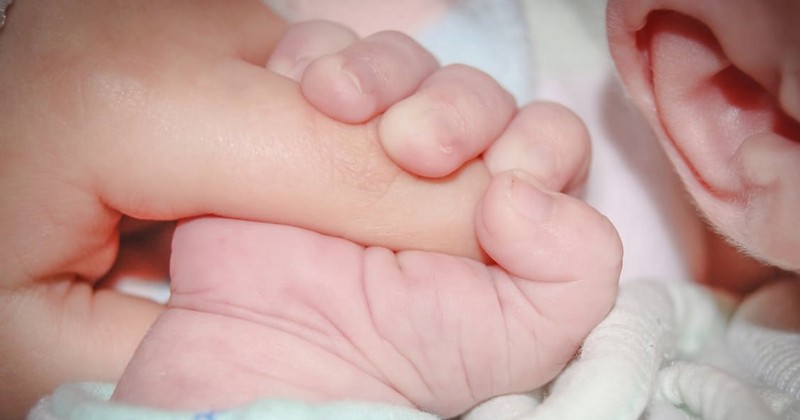Baby blues: sadness after childbirth

A psychological phenomenon linked to motherhood and mood swings after giving birth.
There are some women who, after giving birth, enter into a state of unexplained sadness.. Irritability, emotional decay, sudden mood swings, fatigue and, in some cases, spontaneous crying appear.
This phenomenon does not always have to be a case of postpartum depression.It could also be something known as baby blues and which is, in fact, very common.
What is the baby blues?
The baby blues is a psychological phenomenon that involves the entry into a state of sadness. entering into a state of sadness that can last anywhere from a few hours to a few days to two weeks after delivery. It is considered to be especially frequent in new mothers.and its symptoms do not become so intense as to interfere significantly with the birth attendant's daily chores.
This means that although the baby blues are annoying and create discomfort (or, rather, are the discomfort itself), they do not render women incapable of carrying out their daily tasks, and does not detract from their autonomy.
The baby blues is, more than anything else, a phenomenon that affects the subjectivity of the person, and that, beyond the discomfort itself, does not have very clear and evident objective manifestations. From a clinical point of view, it does not have much importance..
In short, the baby blues is not a psychological disorder, but rather a set of symptoms that are not very intense and which, added together, do not compromise the mother's mental health.
How does it manifest itself?
Among the most frequent symptoms of the baby blues are the following:
- Loss of appetite
- Sleeping problems
- Irritability
- Feeling of malaise and general sadness
- Fatigue
- Spontaneous crying whose causes are difficult to determine
Causes of the baby blues
What causes the baby blues? It is not easy to know, but specialists attribute it to the abrupt hormonal changes that occur in the mother after birth. Specifically, the hormones and substances involved in these changes are estrogensserotoninprogesterone and prolactin..
However, not all causes are isolated within the mother's biology: the way in which she is affected by the environment also produces important effects.. In particular, the need to take care of the baby during the first two weeks produces an important physical and psychological wear and tear that often results in lack of sleep.
In turn, the effects of the environment on the body mix with the hormonal changes generated by childbirth, and out of this neurochemical whirlwind comes the baby blues.
The mild version of postpartum depression
It is very common to confuse the baby blues with postpartum depression, since both phenomena are related to the sadness of the baby blues. are related to sadness. However, the differences between the two phenomena are striking, the differences between the two phenomena are remarkable. In fact, the baby blues are sometimes called postpartum blues to differentiate them from each other.
The baby blues is a set of symptoms, while postpartum depression is a threat to mental health. postpartum depression is a threat to mental health and is a cause for and is cause for clinical psychological and psychiatric treatment that sometimes requires the use of psychopharmaceuticals. Moreover, the former disappears on its own, but the latter must be treated by health specialists.
In addition, while the baby blues can last for a maximum of two weeks and may only appear during the next few days after birth, postpartum depression can last for a year and appear at a later stage, weeks after the time of delivery.
On the other hand, the baby blues are much more common, as they can occur in up to 80% of the up to 80% of births, while postpartum depression is much more common.while postpartum depression in any of its degrees of intensity does not exceed 15%.
How to deal with the baby blues
To know how to manage the baby blues, it is advisable to follow these simple guidelines:
1. Understand that it is hormonal
It is useless to try to rationalize your emotions and discomfort by blaming others. It is better to keep in mind that this discomfort is due to a very common hormonal imbalance, and that it will pass on its own.
2. Find times to rest
If you can have the opportunity to rest and sleep wellIf you do, much of the discomfort will go away soon.
3. Follow routines
Don't expose yourself to very chaotic and unpredictable behavioral dynamics: follow well-defined habits to help your hormone levels return to balance.
4. Accept help from others
Having a baby is not easyand others know it. The baby blues is just one of many proofs of that. That's why it's a good idea to accept help from those who are in a position to help with the tasks.
(Updated at Apr 13 / 2024)